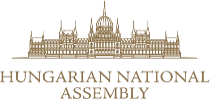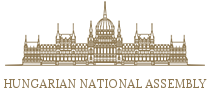The provisions of the Rules of Procedure lay down the rules for committee operation and sittings (Part Four).
Each committee sets down its own methods of operation with a view to the provisions of the Rules of Procedure. If the Rules of Procedure or rules adopted by an individual committee contain no specific provisions on committee operations, the provisions governing the sittings of Parliament shall apply to committee proceedings, as appropriate.
As a general rule, committees must not meet during plenary sittings.
Sittings are convened by the chair (or, if absent, by the deputy chair) of a committee. Committee sittings must adopt an agenda, just as with the orders of the day for a plenary sitting. A sitting enjoys a quorum if more than half of the members are in attendance. The Act on the National Assembly permits absent committee members to authorise another member to stand proxy. The entitlement of a proxy shall not include the exercising of the rights of the committee chair and the deputy chair.
The participation of government (ministry) representatives in the discussion of various agenda items represents an instrumental aspect of the work of the committees. Heads of various associations and interest groups may also be invited to take part in discussing certain issues. Committees may also invite experts to support their efforts.
Since April 2012, committee sittings have been open to both the press and any interested party. Committees may order a closed sitting, however, to protect state secrets and official information or any specific data (closed sittings are standard for the committees on national security and immunity). Committees draft reports on their deliberations, adopt recommendations and make decisions. Minutes from Committee sittings are taken verbatim and posted publicly on the National Assembly website (www.parlament.hu).
Unless otherwise provided by Parliament or a committee, the operation of ad hoc committees and committees of inquiry shall be subject, as applicable, to the rules governing the operation of standing committees. Once formed, ad hoc committees and committees of inquiry normally lay down procedural rules to regulate their operation so as to minimise debate on such matters in the course of their activities.




